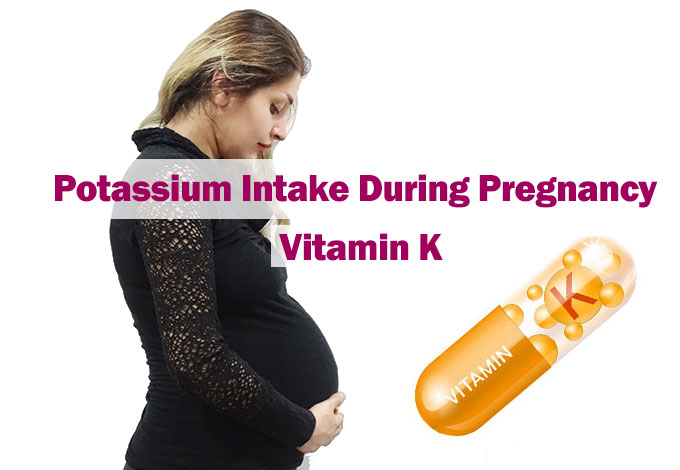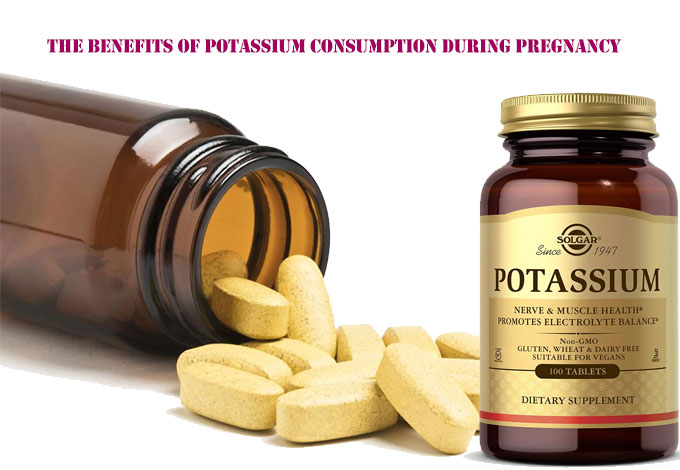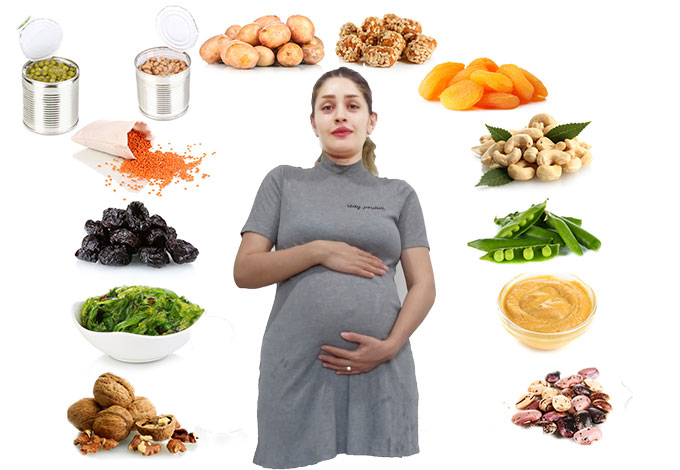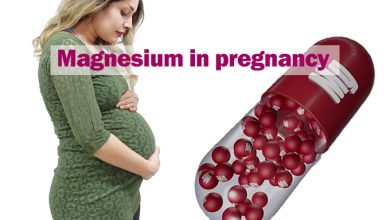Potassium Intake During Pregnancy (Vitamin K)

Hormonal changes occur during pregnancy. These changes will cause special physical conditions and diseases during pregnancy. To deal with this situation, it is better to use a balanced diet during pregnancy. One of the important nutrients for this period is potassium (Vitamin K).
Potassium is an essential substance that the body needs and is responsible for many functions and activities in the body. Potassium is one of the body’s electrolytes. Electrolytes are responsible for sending impulses from nerves to muscles. The body’s ability to absorb fluids depends on the concentration of electrolytes such as potassium.
Related article: best prenatal vitamins Canada
The benefits of potassium consumption during pregnancy
When you are pregnant, your body is expanding, so you will experience pregnancy side effects. Some of the benefits of a high potassium intake during pregnancy are:

- Accumulation of fluid in the body is one of the side effects of pregnancy, taking potassium helps to solve this problem.
- During pregnancy, the woman’s body faces electrolyte disturbances. Consuming potassium largely solves this problem.
- Leg cramps and restlessness are one of the most common problems during pregnancy and can be due to an imbalance of minerals in the body. Consuming potassium along with calcium and magnesium prevents this problem.
Daily intake of potassium
We should always be careful with our potassium intake. Taking a high dose of potassium has side effects. High consumption of potassium can be just as dangerous as its deficiency. Consult your doctor if you are taking medicines or foods rich in potassium. The general guideline for potassium intake is 4,700 mg, and about 5,100 mg if you’re breastfeeding.
Normal range of potassium during pregnancy
The amount of potassium consumed during pregnancy depends on which month of pregnancy you are in. For example, in the first trimester, it is 3.6 to 5 mmol/liter, in the second trimester it is 3.3 to 5 mmol/liter, and in the third trimester, it is 3.3 to 1.5 mmol/liter.
High potassium (hyperkalemia) during pregnancy
A high potassium intake during pregnancy may lead to a condition called hyperkalemia, which can lead to cardiac arrest or kidney failure. It can also lead to severe dehydration and death or lead to type 1 diabetes.
Cause of hyperkalemia
- Prescription of special medicines.
- Excessive consumption of supplements
- Eat foods rich in potassium
signs and symptoms
It is important to recognize the signs and symptoms of hyperkalemia as soon as possible and seek medical attention. Some of the symptoms of hyperkalemia are:
- Irregular heart rhythm
- Extreme tiredness
- Chest pain
- Irregular lung function leading to shortness of breath
- Feeling of numbness
- Feeling faint
Symptoms of high potassium levels during pregnancy
High potassium levels during pregnancy may lead to miscarriage, premature birth, or death of the mother and baby.
Treatment of side effects of high potassium consumption
In case of early diagnosis of high potassium consumption, these ways are recommended for treatment :
- Prescribing calcium supplements to prevent potassium from damaging your muscles
- Injection of insulin, specific diuretics, and sodium polystyrene sulfonate to reduce potassium levels
- In case of kidney failure, dialysis is performed.
Potassium deficiency (hypokalemia) during pregnancy
On the other hand, low potassium consumption during pregnancy has dangerous side effects. Potassium deficiency will cause muscle cramps and difficulty in childbirth and other complications.
Causes of potassium deficiency during pregnancy
- Unbalanced diet
- Vomit
- Diarrhea
Some symptoms of potassium deficiency
- Muscle cramps
- Extreme weakness or fatigue
- Irregular heartbeat or rhythm
- Dry skin
- low blood pressure
Complications of potassium deficiency
Potassium deficiency is very dangerous. But high amounts of potassium will also cause fetal death. Potassium deficiency leads to heart problems and causes swelling and inflammation of the body in pregnant women.
You may also face a urinary infection due to the accumulation of water in the body. Also, premature birth is another effect of potassium deficiency. If you have these symptoms, see a doctor as soon as possible.
Treatment of potassium deficiency
- Have a diet rich in avocados and potatoes.
- Use potassium supplements with a certain dose according to your doctor’s prescription
If needed, your doctor will restore your potassium through an intravenous injection of electrolytes.
Food rich in potassium for pregnant women
It is recommended to eat these foods during pregnancy:
1- Avocados
Avocado is a rich source of vitamins and minerals useful for pregnancy and rich in potassium, and its consumption is recommended for pregnant women. Eating one avocado a day ensures your health.
2- Potatoes
One of the most delicious foods in the world is the potato. This food is rich in magnesium and potassium. The potato also contains iron, vitamin B, and vitamin C
3- Sweet potato
Sweet potatoes also have the properties of regular potatoes. The sweet potato is a rich source of fiber, iron, vitamins, and minerals such as potassium. This food is one of the healthiest root vegetables.

4- Beans
Beans are rich in nutritious minerals. Just one cup of beans containing 500 grams will cover your daily potassium requirement. You can add the beans to salads or other dishes or eat them as a snack.
5- Bananas
Eating bananas prevents constipation during pregnancy due to natural laxatives, fiber, and potassium. Eating a banana during pregnancy keeps the potassium level in the blood balanced.
Precautions
- Never use potassium supplements without a doctor’s prescription. An imbalance in potassium levels can be dangerous.
- Do not exceed the recommended dose of potassium
- Don’t focus only on foods that contain potassium in your diet, because it will cause an imbalance in your food chart.
- Be sure to consult a specialist about including potassium in your diet. Remember that a balanced diet doesn’t depend on just one mineral.
Should you take a potassium supplement?
Why do you need potassium during pregnancy?
Your blood volume increases by 50% during pregnancy, so you need a little more electrolytes, namely sodium, potassium, and chloride, to maintain the chemical balance of these extra fluids in your body.
If you experience leg cramps during pregnancy, it’s a good idea to check if you’re getting enough potassium, as a lack of this mineral or a lack of sodium, calcium or magnesium could be to blame.
